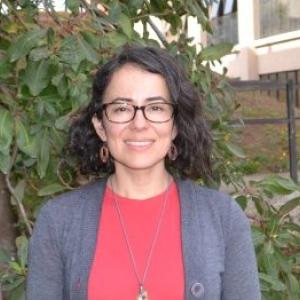Ms. Mayra Núñez Vallecillo
About me
Mayra Núñez Vallecillo is a Honduran marine biologist with experience in the conservation of coastal and marine ecosystems. She is currently pursuing her Ph.D. with the dissertation “Meta-ecosystems: connectivity and energy flow between coastal-marine ecosystems in the Honduran Caribbean,” focusing on the protection of coral reefs, mangroves, and seagrass beds. Mayra has worked on projects related to water quality monitoring, fisheries, and habitat restoration in the Honduran Caribbean, collaborating with local communities and organizations such as the Coral Reef Alliance. Her main interest is to generate applied science that contributes to the sustainable management of marine resources and strengthens the resilience of coastal communities.
Mayra Núñez Vallecillo is a Honduran marine biologist and Ph.D. candidate at Universidad Austral de Chile, specializing in the conservation and sustainable management of coastal and marine ecosystems. Her doctoral research, titled “Meta-ecosystems: connectivity and energy flow between coastal-marine ecosystems in the Honduran Caribbean,” focuses on understanding the ecological links between terrestrial and coastal ecosystems, such as rivers and watersheds and their interactions with mangroves and coral reefs. The ultimate goal of her work is to provide science-based recommendations that strengthen conservation efforts and promote sustainable fisheries management in the region.
Throughout her career, Mayra has collaborated with local communities, governmental institutions, and international organizations, including the Coral Reef Alliance, where she has supported initiatives on water quality monitoring, marine protected areas, and community-based fisheries management in Honduras. Her work bridges scientific research with applied conservation strategies, highlighting the importance of ecosystem resilience and the socio-ecological well-being of coastal communities.
Her long-term vision is to contribute to the advancement of applied marine science in Honduras and the wider Caribbean, fostering conservation actions that safeguard healthy ecosystems and support sustainable livelihoods for local communities.
